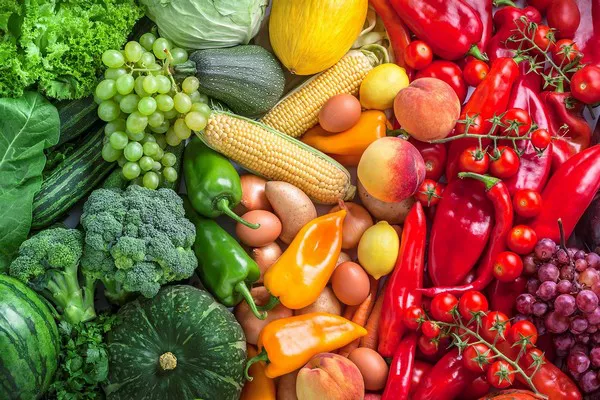Vegan diets have become increasingly popular in recent years, with many people choosing to adopt a plant-based lifestyle for ethical, environmental, or health reasons. While a well-planned vegan diet can provide all the necessary nutrients for good health, there are some vitamins that are more difficult to obtain from plant-based sources. In this article, we’ll explore which vitamins are vegan diets lacking, and how to ensure that you’re getting enough of these essential nutrients.
1. Vitamin B12
Vitamin B12 is a crucial nutrient that is necessary for the proper functioning of the nervous system and the production of red blood cells. It’s found almost exclusively in animal-based foods, which means that vegan diets are often lacking in this essential nutrient. While some plant-based foods are fortified with B12, such as plant-based milks, cereals, and nutritional yeast, it’s important to supplement with B12 to ensure adequate intake.
Vegans can also obtain B12 through fortified foods or supplements. The recommended daily intake of B12 for adults is 2.4 micrograms per day.
2. Vitamin D
Vitamin D is important for bone health, immune function, and calcium absorption. While our bodies can produce vitamin D when our skin is exposed to sunlight, it can be difficult for vegans to obtain enough vitamin D from food sources alone. Some plant-based sources of vitamin D include fortified plant-based milks, mushrooms, and fortified cereals.
However, it’s important to supplement with vitamin D to ensure adequate intake, especially for those who live in areas with limited sunlight or who have limited sun exposure. The recommended daily intake of vitamin D for adults is 600-800 IU per day.
3. Omega-3 Fatty Acids
Omega-3 fatty acids are important for heart health, brain function, and reducing inflammation in the body. While some plant-based sources of omega-3s, such as flaxseeds, chia seeds, and walnuts, contain alpha-linolenic acid (ALA), it’s important to consume enough of these sources to convert ALA into the active forms of omega-3s, EPA and DHA.
Vegans can obtain EPA and DHA through algae-based supplements, which are derived from the same source that fish obtain their omega-3s. The recommended daily intake of omega-3s for adults is 250-500 mg per day.
4. Iron
Iron is important for the production of red blood cells and the transport of oxygen throughout the body. While plant-based sources of iron, such as beans, lentils, tofu, and dark leafy greens, are abundant, the iron in plant-based foods is less easily absorbed by the body than the iron in animal-based foods.
To increase iron absorption, it’s important to consume plant-based sources of iron with vitamin C-rich foods, such as citrus fruits, tomatoes, and bell peppers. Vegans can also obtain iron through fortified cereals and supplements. The recommended daily intake of iron for adults is 18 mg per day for women and 8 mg per day for men.
5. Calcium
Calcium is important for bone health, muscle function, and nerve transmission. While dairy products are a common source of calcium, vegans can obtain calcium from plant-based sources such as fortified plant-based milks, tofu, and dark leafy greens.
It’s important to consume enough calcium to meet daily needs, which can be achieved through a combination of plant-based sources and supplements. The recommended daily intake of calcium for adults is 1000-1200 mg per day.
6. Zinc
Zinc is important for immune function, wound healing, and cell growth and division. While plant-based sources of zinc, such as beans, nuts, and whole grains, are abundant, the zinc in plant-based foods is less easily absorbed by the body than the zinc in animal-based foods.
To increase zinc absorption, it’s important to consume plant-based sources of zinc with vitamin C-rich foods, such as citrus fruits, tomatoes, and bell peppers. Vegans can also obtain zinc through fortified cereals and supplements. The recommended daily intake of zinc for adults is 8-11 mg per day for women and 11 mg per day for men.
7. Conclusion
In conclusion, vegan diets can provide all the necessary nutrients for good health with proper planning and attention to nutrient intake. However, there are some vitamins that are more difficult to obtain from plant-based sources, including vitamin B12, vitamin D, omega-3 fatty acids, iron, calcium, and zinc.
To ensure adequate intake of these essential nutrients, vegans should consider supplementing with fortified foods or supplements, and consuming a variety of plant-based sources of these nutrients. It’s also important to talk to a healthcare provider or registered dietitian to ensure that nutrient needs are being met. With proper planning and attention to nutrient intake, vegan diets can provide all the necessary nutrients for good health.
[inline_related_posts title=”You Might Be Interested In” title_align=”left” style=”list” number=”6″ align=”none” ids=”4130,4066,4060″ by=”categories” orderby=”rand” order=”DESC” hide_thumb=”no” thumb_right=”no” views=”no” date=”yes” grid_columns=”2″ post_type=”” tax=””]































